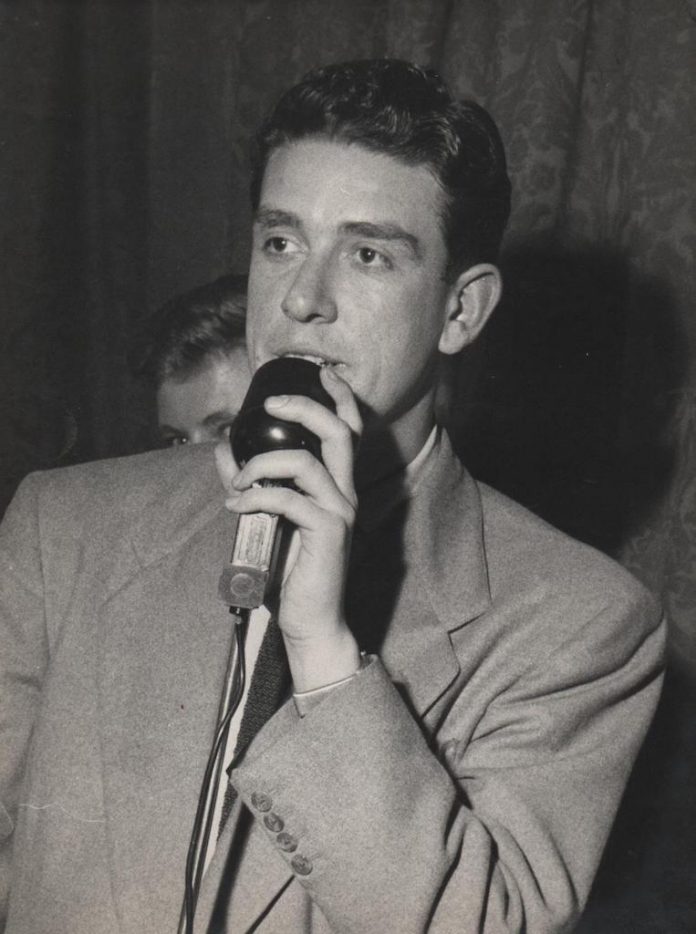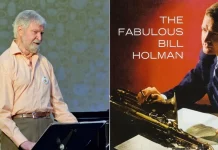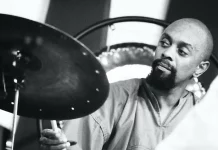The revival of the Tempo label in the mid-1950s provided a vital platform for British modern jazz and the music’s rapidly maturing talents. That players like Tubby Hayes, Dizzy Reece, Victor Feldman and Jimmy Deuchar were given an outlet for their expression was due largely to one man, Tony Hall.
Born Anthony Salvin Hall on 1 April 1928, in Avening, Gloucestershire, and educated at Lancing College, Hall grew up with jazz, was an early champion of bebop and earned the respect and trust of the musicians during his tenures as compère at the Feldman Club, Studio 51 and Jazz at the Flamingo between 1949 and 1961. He hosted BBC Jazz Club in the early 1950s and was also a iazz columnist for a host of publications including Musical Express, New Musical Express, Disc and Show Business Review. He booked bands for Jeff Kruger, and formed the Tony Hall All-Stars for gigs at the Festival HaIl, clubs and record dates.
But it was during the early part of his 13-year (1954-1967) stint with Decca Records that he was able to persuade the company to record the best players on the local jazz scene for Tempo. There followed a series of ground-breaking EPs, 10″ and 12″ LPs which documented the progress of some wonderful young artists. For the first time Hayes, Reece, Deuchar, Bogey Gaynair and others were showcased as leaders.
Through Hall’s efforts, Dizzy Reece was able to move to the USA, assured of a recording contract. Victor Feldman also relocated to the USA and expanded his reputation. The careers of Hayes and Deuchar were considerably boosted and their fame spread around the world. Tony Hall also produced recordings for the American Blue Note, Riverside and Carlton labels, while Tempo put the Jazz Couriers on the international map. Tempo’s rnodern jazz involvement lasted less than six years (1955 -1960), but its catalogue captured some of the finest recorded jazz of the period in this country.
When the label folded, Hall continued what was to be a long career in other spheres of music. He promoted many big names, including the Rolling Stones, Jimi Hendrix, the Moody Blues, Motown artists, etc. Undeterred by the first of two triple heart by-pass operations in 1990, Tony continued in music management (over the years handling the careers of some of the UK’s most respected soul/R&B artists including The Real Thing, Loose Ends – the first black British band to top the Billboard R&B charts – and the late Lynden David Hall), resumed jazz record reviewing and participated in a series of TV and DVD documentaries on the Rolling Stones, Procol Harum and Soul Britannia.
The Tempo recordings, lovingly reassembled for CD release on Jasmine by the late Brian Davis, form an enduring musical legacy which shows how British stylists were as individual as their American counterparts, and in the late 1950s were, in many cases, the equals of some of the most heavily touted soloists on the other side of the Atlantic.
This obituary was drawn almost unaltered from the introduction to an interview by Mark Gardner published in Jazz Journal August 2008. Thanks are due to Mark for his expert summary of Tony Hall’s career. The original article fills four pages, including evocative photos and contains many insights into TH’s career and the jazz scene in which he moved. A PDF of the full article (and any other article from the print editions of JJ) is available for a small fee. Write the editor.
















